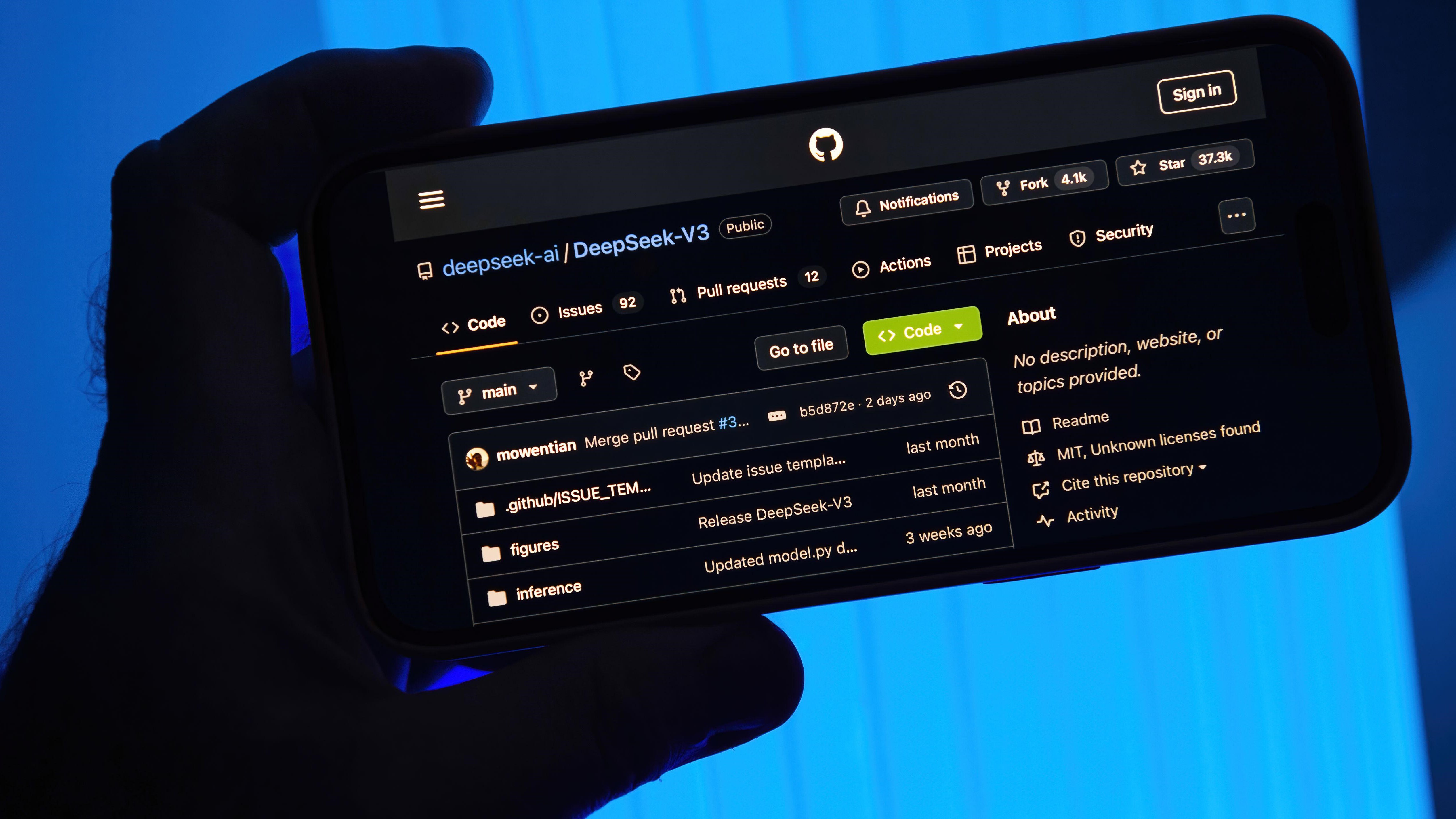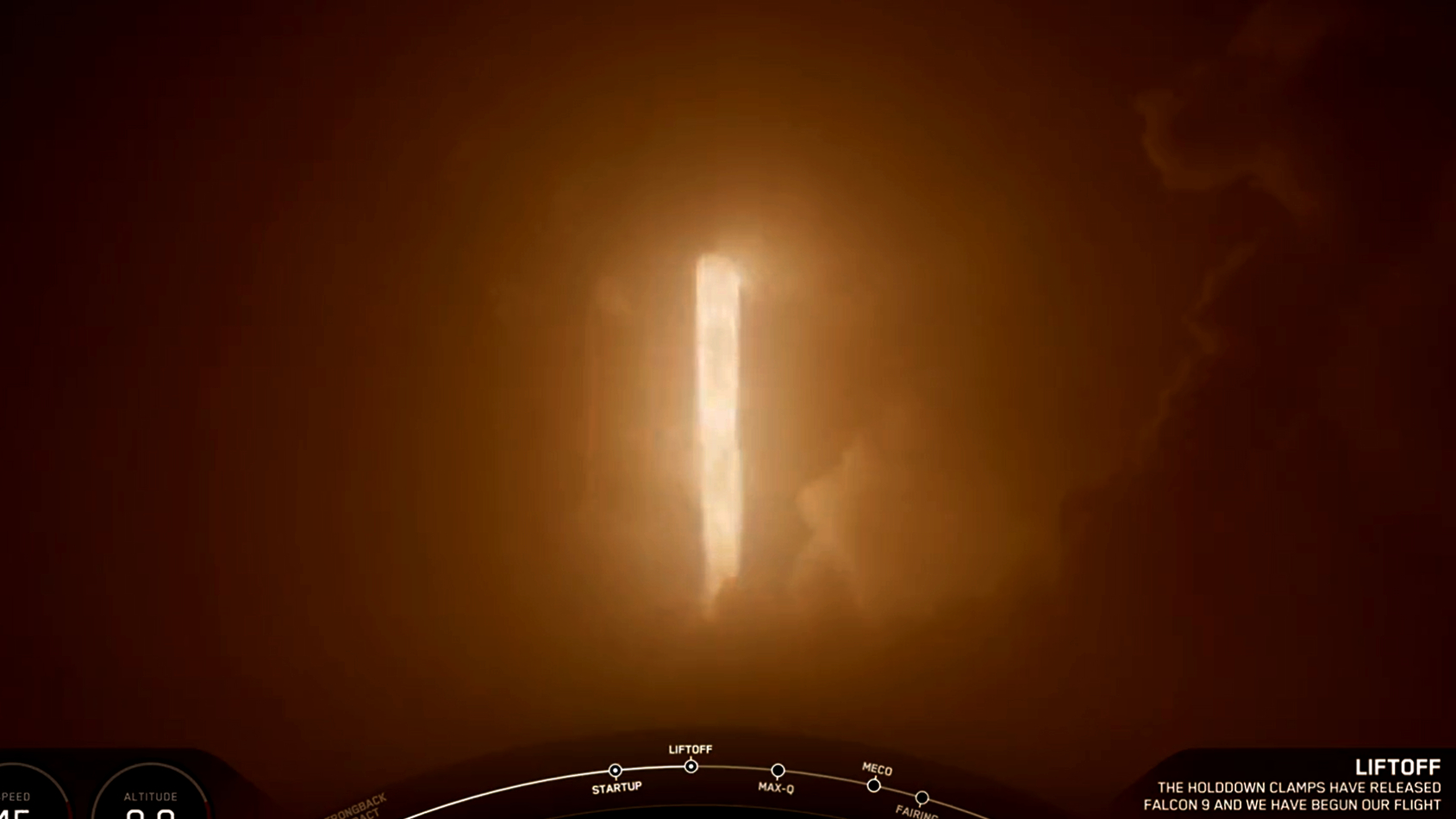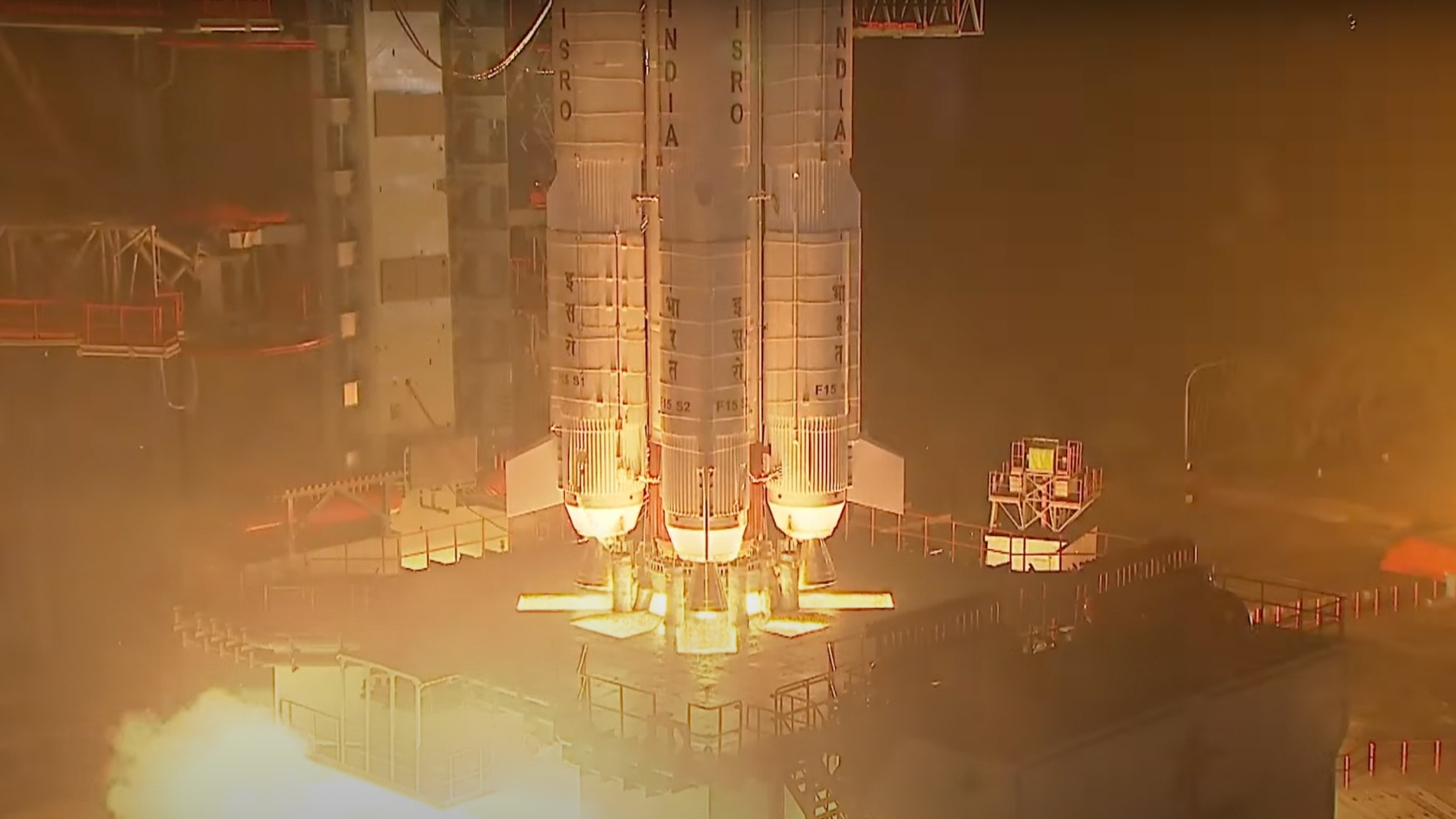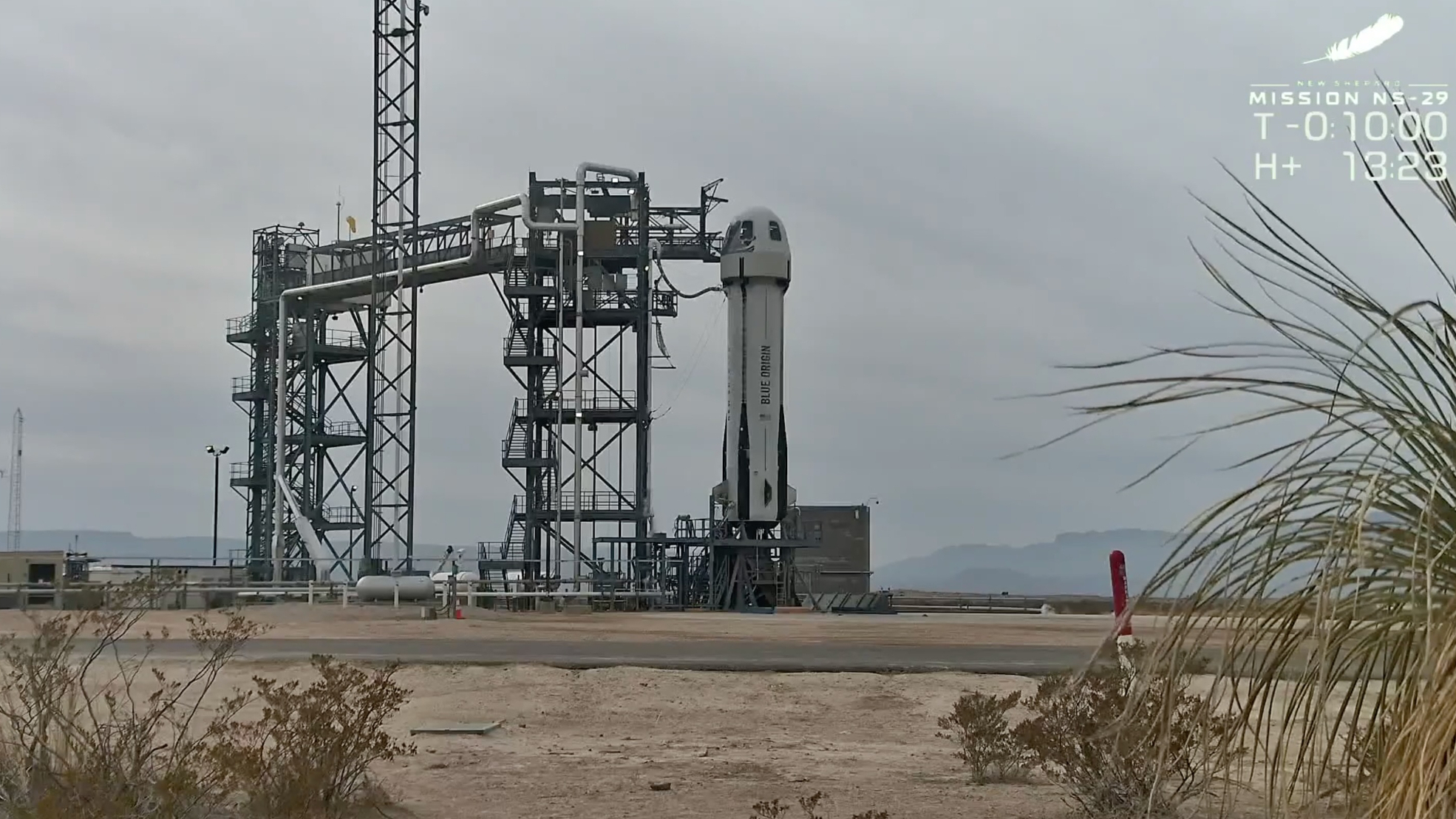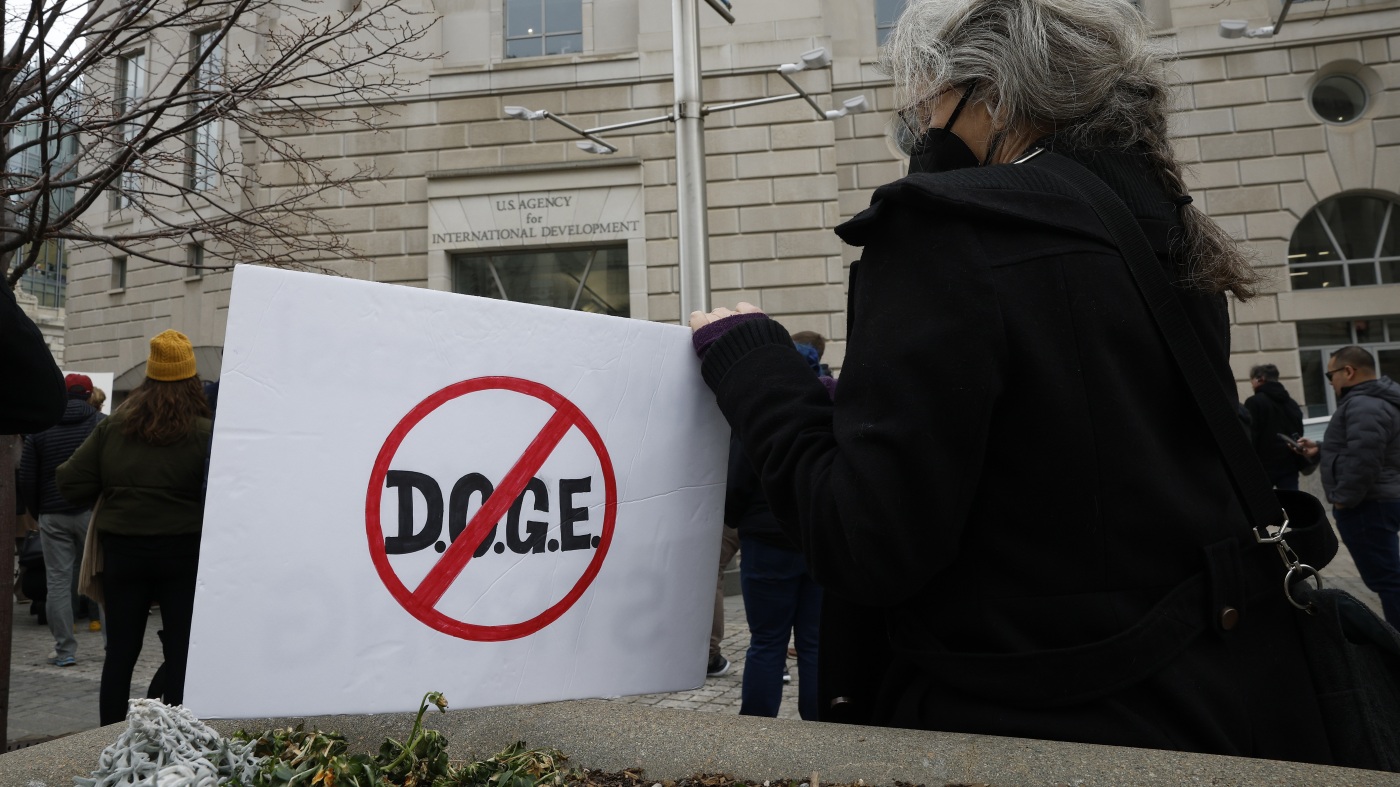The ‘Rapid Unscheduled Disassembly’ of the United States Government
Elon Musk’s bureaucratic coup is underway.

Elon Musk is not the president, but it does appear that he—a foreign-born, unelected billionaire who was not confirmed by Congress—is exercising profound influence over the federal government of the United States, seizing control of information, payments systems, and personnel management. It is nothing short of an administrative coup.
As the head of an improvised team within the Trump administration with completely ambiguous power (the Department of Government Efficiency, or DOGE, in reference to a meme about a Shiba Inu), Musk has managed quite a lot in the two weeks since Inauguration Day. He has barged into at least one government building and made plans to end leases or sell some of them (three leases have been terminated so far, according to Stephen Ehikian, the General Services Administration’s acting administrator). He has called in employees from Tesla and the Boring Company to oversee broad workforce cuts, including at the Office of Personnel Management (one of Musk’s appointed advisers, according to Wired, is just 21 years old, while another graduated from high school last year). During this time, OPM staffers, presumably affiliated with DOGE, reportedly set up an “on-premise” email server that may be vulnerable to hacking and able to collect data on government employees—one that a lawsuit brought by two federal workers argues violates the E-Government Act of 2002 (there has not yet been a response to the complaint). Musk’s people have also reportedly gained access to the Treasury’s payments system—used to disburse more than $5 trillion to Americans each year (a national-security risk, according to Senator Ron Wyden, a democrat from Oregon)—as well as computer systems that contain the personal data of millions of civil servants. (They subsequently locked some senior employees out of those systems, according to Reuters.) Musk did not immediately respond to a request for comment.
Over the weekend, the Trump administration put two senior staffers at the U.S. Agency for International Development (USAID) on administrative leave—staffers who, according to CNN, had tried to thwart Musk’s staff’s attempts to access sensitive and classified information. Musk posted on X yesterday that “USAID is a criminal organization. Time for it to die.” USAID staffers were barred from entering the unit’s headquarters today.
This is called “flooding the zone.” Taken in aggregate, these actions are overwhelming. But Musk’s political project with DOGE is actually quite straightforward: The world’s richest man appears to be indiscriminately dismantling the government with an eye toward consolidating power and punishing his political enemies.
Two days before the 2024 election, I wrote that Musk’s chaotic takeover of Twitter was going to be the blueprint for his potential tenure at DOGE. Unfortunately, I was right—he’s running the exact same playbook. But it’s worth keeping in mind that there are two ways of measuring success for Musk’s projects: first, whether the organizations themselves benefit under his leadership, and second, whether Musk himself gets something out of the arrangement. Musk’s stewardship of X has been a financial nightmare. He has alienated advertisers, tanked revenue and user growth, and saddled investment banks with debt from the purchase that they’ll need to sell off. Yet Musk’s own influence and net worth have grown considerably during this time. His fanboys and the MAGA faithful don’t care that X is a flailing business, because Musk did deliver on giving liberals their supposed comeuppance by de-verifying accounts and reinstating banned trolls. He turned the platform into a conspiratorial superfund site, has boosted right-wing accounts and talking points, and helped elect Donald Trump as president. Musk’s purchase is a success in their eyes because he succeeded in turning X into a political weapon.
[Read: Musk’s Twitter is the blueprint for a MAGA government]
The same thing is happening right now with DOGE. Musk and his Silicon Valley acolytes are acting on a long-held fantasy of approaching the federal government like a software company and running it like a venture-backed tech start-up during the days of zero-percent interest rates. Here’s the problem: The federal government is not a software company. “The stakes are wildly different,” a former senior Twitter executive told me recently. This person, who requested anonymity because they worked closely with Musk during his takeover and fear retribution, argued that Musk seems incapable of recognizing the limits of his own knowledge. When I asked them to describe Musk’s managerial strategy, they borrowed a term of art from SpaceX’s own rocket mishaps: “This is a rapid unscheduled disassembly of government services.”
The theory that the government is inefficient is not altogether incorrect. I recently spoke with Robert Gordon, formerly the deputy assistant to the president for economic mobility in the Biden administration, to get a sense of how intricate government agencies are and what it would take to reform them. Gordon, who has spent time in the Office of Management and Budget and as the assistant secretary responsible for grants policy at the Department of Health and Human Services, was quick to note that we desperately need to simplify processes within the federal government to allow workers to execute more quickly and develop more agile technology, such as the Direct File product that the IRS recently made to allow Americans to file taxes for free. “No doubt the government could do more here,” he told me. “But it requires incredibly specific approaches, implemented in a thoughtful way. It requires paying enormous attention to detail, not blowing shit up.” Musk and DOGE have instead operated with a “vast carelessness,” Gordon wrote in a Substack post last week. “This government cannot trouble itself to plan for the biggest things, the funds that thousands of organizations use to serve millions of people,” he wrote. “It has swept up civil servants in a vortex of confusion and fear.” Musk wrote today on X that the Treasury team that built Direct File no longer exists. “That group has been deleted,” he said.
[Read: The American people deserve DOGE]
Among Gordon’s biggest concerns is that DOGE’s slapdash cuts will remove key links in the bureaucratic chain that make the government function. Even simple-sounding procedures—allocating government funds in a crisis like, say, a pandemic—require coordination among teams of civil servants across multiple government offices. “All of this is done by back-office types,” Gordon told me. “There are so many people in that process, and it matters enormously how good they are.” That this system is inefficient is frustrating, Gordon said, but he worries that the chaos caused by Musk’s efforts will halt any possibility of reform. “If you want to make this system better, you need to create space for civil servants who know what they’re doing to do that work,” he told me. “What’s very likely to happen now because of this pressure is that the most competent people on that chain are at super-high risk of saying, I gave it my best shot; I don’t need this and quit, because they can get better jobs. That’s what I see happening.”
Of course, the so-called tech right does not agree. As the political scientist Henry Farrell wrote this past weekend, “The fact that none of the DOGE people actually understand how government functions is a feature, not a bug. If you understand the workings of the federal bureaucracy, you are almost certainly part of the problem, not the solution.” But this reasoning is not usually compatible with the reality of managing complex organizations. As the former Twitter exec told me, after Musk took over the platform, his people enthusiastically championed ideas that seasoned employees with knowledge of the company had already researched and rejected: “It wasn’t that we hadn’t thought about new ways, say, to do verification or handle bots, but we rejected them on the basis of research and data. There was a huge contrast between the methodical approach and Musk’s rapid-fire whims.”
When Musk barged into Twitter in 2022 as its new CEO, his strategy was “decision making by vibes,” according to the former exec I spoke with. Those vibes were often dictated by the sycophants in Musk’s orbit. The executive described Musk as surprisingly receptive to ideas when presented with facts and data, but said that few in his inner circle questioned or spoke frankly with him: “And so, in the absence of rational decision making, we got the vibes-based, yes-man approach.”
The former executive did point to a meaningful difference between X and DOGE, however: The government is big and complex. This may be an asset during an assault. “Even if you try to take a flamethrower to the government, the destruction won’t be quick. There’ll be legal challenges and congressional fights, and in the months and weeks, it’ll be individuals who keep essential services running,” they said. The government workers who know what they’re doing may still be able to make positive incremental change from within.
[Read: There really is a deep state]
It’s a rousing, hopeful notion. But I fear that the focus on the particulars of this unqualified assault on our government is like looking at X’s bottom line, in that it obscures Musk’s real ambitions. What are DOGE’s metrics for success? If X is our guide, health, functionality, and sustainability are incidental and able to be sacrificed. The end game for Musk seems to be just as it was with Twitter: seize a polarized, inefficient institution; fuse his identity with it; and then use it to punish his enemies and reward his friends. DOGE is a moon-shot program to turn the government into Musk’s personal political weapon.





















